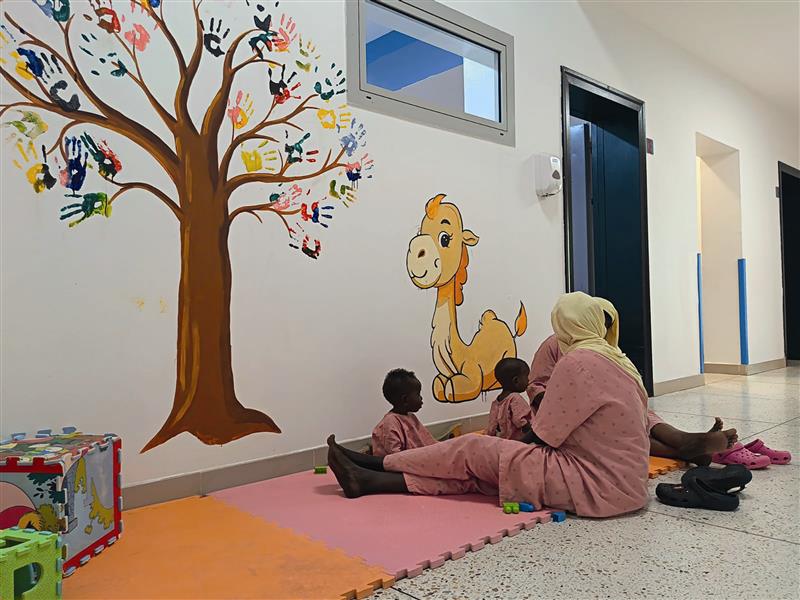The war in Sudan has raged for more than 1,000 days. The fighting continues to…

M., 14 Years Old, From Nyala
M. lives in Nyala. He goes to school and plays football, like many children his age.
About three years ago, his life changed: the first symptoms of a disease that would compromise two of his heart valves appeared.
He visited several hospitals in Darfur seeking treatment, until he became a patient at our Nyala Paediatric Centre in December 2022.
Meanwhile, the disease was worsening.
He was following the treatment plan we prescribed, until two months ago when his medications ran out and the war took everything. His family’s home was destroyed by bombing. Together with his five brothers he was displaced, and now the family is forced to live in a tent.
At the same time, the Nyala Paediatric Centre was forced to suspend its activities due to a lack of security.
But, M. still needed care. Amidst the difficulties, his father accompanied him to our Salam Centre for Cardiac Surgery in Khartoum. An eight-day journey, “by bus and makeshift vehicles,” they tell us, “encountering difficulties of all kinds, checkpoints along all the roads.”
Now M. is well – he has already recovered from his heart surgery and we discharged him a few days ago. We will see him again in a month for a follow-up, and have provided all the medication he will need in the interim. He and his father will remain in Khartoum: “We want to make sure we don’t miss the first follow-up visit,” they say.
After more than seven months of fighting, the situation in Sudan is devastating: essential humanitarian aid, medicines and medical supplies are struggling to enter the country.
We continue to do what we can, every day, to offer care to a population exhausted by the conflict and to protect the right to health, even in the midst of war.
We are not abandoning Sudan.
The Salam Centre for Cardiac Surgery in Khartoum, Sudan, is funded by AICS (Italian Agency for Development Cooperation) Khartoum as part of the Emergency Programme for the population of Sudan affected by natural disasters and conflict (AID 12213).



